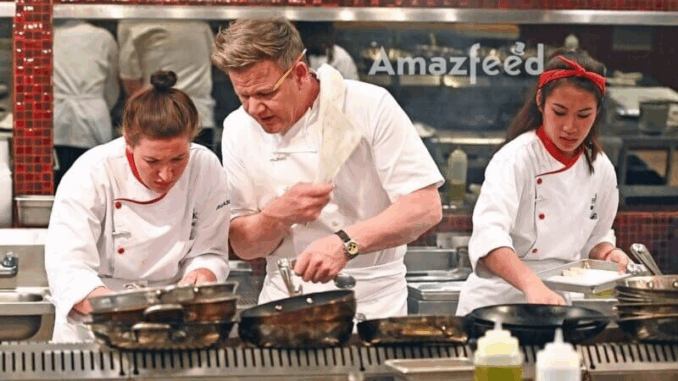
Gordon Ramsay is known for his fiery temper, sharp tongue, and unmatched culinary talent. But beneath the success and global acclaim lies a darker question—what happens to those who step into his world and don’t come out stronger?
One shocking example centers on a little-known chef named Johnathan Moore, a former participant on one of Ramsay’s restaurant rescue shows. In 2018, Moore owned a small, struggling bistro in New England. He applied to be on Ramsay’s show hoping for guidance, a revamp, and maybe even a boost in business. What he didn’t expect was a televised demolition of his self-esteem.
Cameras caught every second of Ramsay’s brutally honest feedback—criticizing Moore’s lack of leadership, poor menu, and personal demeanor. At one point, Ramsay famously shouted, “You’re not a chef—you’re a liability!” Millions watched the episode. What they didn’t see was the aftermath: Moore closed the bistro six months later, citing online backlash and a shattered sense of confidence.
This wasn’t an isolated incident. A handful of participants across Ramsay’s television empire have stepped forward over the years with similar stories. Some claim their mental health deteriorated after the show aired. One former waitress said she was labeled “lazy” on-air but was working double shifts off-camera. “It made me look like a joke,” she later said in an interview. “Customers mocked me. I had to leave the town.”
Ramsay has always defended his style as “tough love.” In many cases, that’s true—some restaurants and careers were completely revived under his no-nonsense guidance. But the blurred line between entertainment and real-life destruction raises concerns. How much pressure is too much? And at what cost?
Critics argue that Ramsay’s brand depends on outrage. His shows are edited for drama, not empathy. Heated arguments and breakdowns generate views—but the long-term impact on participants’ lives rarely makes the final cut. The tension between TV stardom and human consequence has never been more apparent than in recent years.

Interestingly, Ramsay himself has acknowledged that early in his career, he may have gone too far. In a 2022 podcast, he admitted: “I look back at some moments and think, ‘Damn, I was harsh.’ But I also know that pressure creates diamonds.”
Not everyone agrees. A former producer of Kitchen Nightmares, speaking anonymously, said, “We were told to amp it up. The louder Gordon got, the better. But sometimes we’d turn real people’s worst moments into viral clips—and they’d pay the price.”
Still, Ramsay remains unapologetically himself. Millions love him for his authenticity, his honesty, and his refusal to sugarcoat failure. But as more participants come forward about their post-show trauma, the conversation is shifting. What’s entertainment to the audience could be devastation to someone trying to build a dream.
The question fans must ask is this: Are we witnessing a transformation—or a public unraveling? And can Gordon Ramsay’s legacy survive the growing scrutiny of those he may have left behind?
The line between critique and cruelty is razor-thin in Ramsay’s world. And as more of his former collaborators break their silence, the myth of Gordon Ramsay as a savior-chef begins to crack.